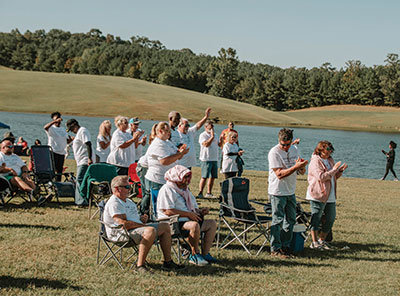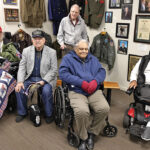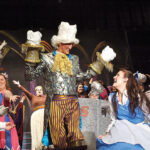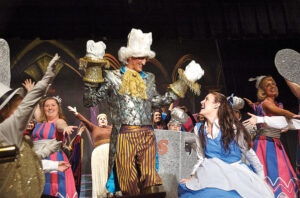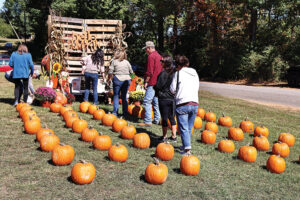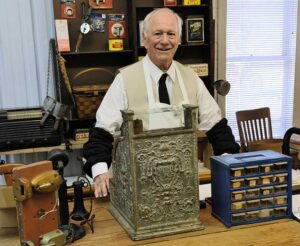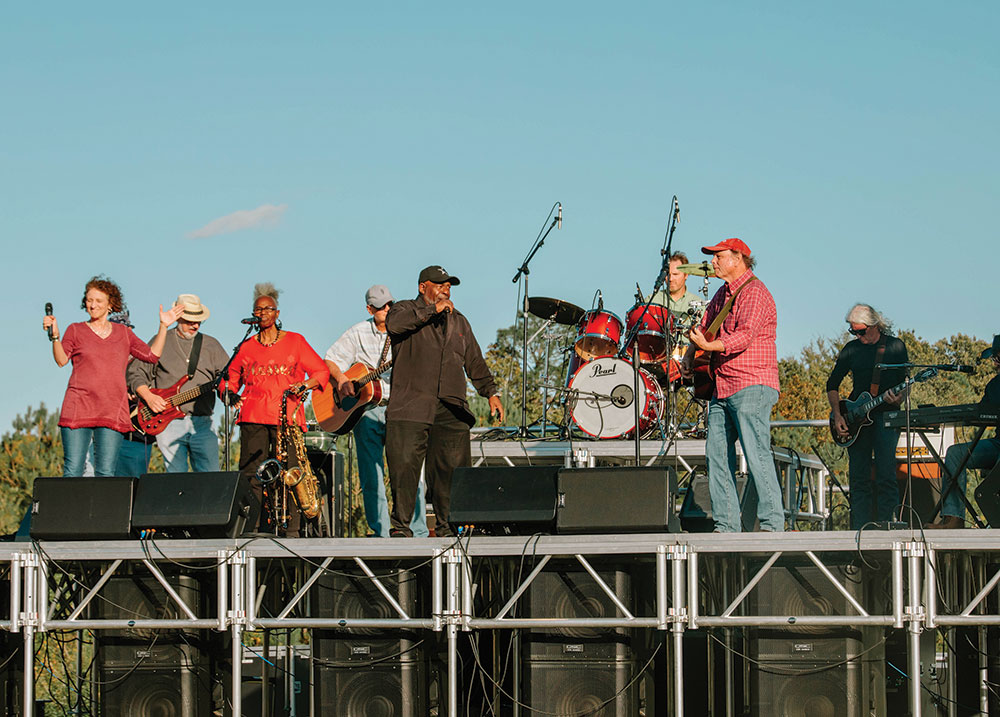
Lovestock Festival Promotes Unity and Love
Story by Roxann Edsall
Photos by Mackenzie Free
In August of 1969, there was a music festival of some note, held on a dairy farm a few hours outside of New York City. Attended by over 400,000 people, that music festival, known as Woodstock, was promoted with the slogan, “Three Days of Peace and Music.” The country was in the middle of turbulent times, and organizers thought music could bring some inner peace to festival goers.
Fast-forward 54 years to a farm in the heart of Pell City, Alabama. Hundreds of people have gathered to enjoy a free music festival. The festival is called Lovestock, a nod to the intent of the historic 1969 music mega-festival. As you walk from the parking area toward the stage, you enjoy the serene beauty of this farm, with its expansive views of gently sloping green hills and fields.
As you approach the stage, you hear the master of ceremonies tell the crowd that today there are no races, no black, no white, just love. “Today,” the voice explains, “will be all about the collective experiences of cultural and ethnic backgrounds and their expressions of love in music.” Throughout the day, the shared joy and community among the participants creates a truly palpable sense of love and unity.
During breaks in the music, squeals of joy can be heard from the children’s inflatables play area. Groups of festival goers wander about to visit the food truck and vendor area as they wait to hear their favorite group sing. Unlike the rainy, muddy conditions that characterized the Woodstock festival site, the weather on this October day is sunny and warm, with a breeze that hints of the changing seasons.
Individuals and bands from five states share the stage at various times throughout this day-long music festival. The 17 acts will later be edited into four shows for Alabama Gospel Roots, a popular television show which airs on Saturday nights at 8 p.m. on Alabama Public TV (APT).
Al Lewis has been playing saxophone for 64 years. He’s playing with two different bands on this day. “I was around at the time of Woodstock,” he says. “Lovestock is different and so much better. No alcohol, no chemicals, just totally Christian love.” He joins the band, Lite Brigade, in the morning set and Healed by the Blood in the closing act of the day.
Rev. Dr. Renita Allen-Dixon is a popular gospel recording artist from Tallahassee, Florida, and has just finished her set on stage. She agrees with Lewis about the festival and its location. “You can feel life and the presence of God here,” she adds. “It’s an opportunity for God to bring serenity and peace and for faith to be renewed.”
The idea for Lovestock began two years ago as the brainchild of four men working on various projects in the entertainment industry in Alabama. George W. Stewart, host of the Alabama Gospel Roots television show pitched to his friend, Charlie Beavers, the idea of putting on an outdoor music festival. Beavers, a Birmingham attorney and frequent guest musician on the gospel show, agreed to help, and the idea took flight. Beavers suggested including Rodney Burrow, a friend he had worked with previously on a charity music event. Michael Sutton, who manages Iron City Collective, a pop-up worship event group which produces worship events at places like Railroad Park in downtown Birmingham, rounded out the group.
APT had been taping Alabama Gospel Roots at venues all around the state since the COVID pandemic shut down their studio in Montgomery. As they continued to talk about it, the plan began to take shape as a Christian Woodstock equivalent, with back-to-back groups playing throughout the day, but without the negative connotations and volatility that became associated with the iconic ‘60s festival.
Lovestock organizers added to their event promotion the tagline, “What the World Needs Now Is Love,” a reference to a popular 1965 song recorded by Jackie DeShannon. “That’s truly what the world needs now,” said Stewart. “There’s a lot of hurt in the world today. We’re going to show a pure expression of love for each other and love for God. We hope people leave empowered to share this example of unity with the world.”
Organizers booked Lovestock at Rodney Burrow’s 123-acre farm. Its green, rolling hills and water features project a decidedly golf course feel, with good reason. Burrow purchased the land from the estate of Charles Carter, owner of Carter Golf Company, a world-renowned company that built many famous golf courses, including the Robert Trent Jones courses in Alabama.
“Carter used his company equipment and sculpted it, I’m told, from basically swampland to the tranquil and beautiful hills and lush greenways that it is now,” tells Burrow.
Burrow had been looking for land to buy outside of Birmingham in 2012 when the property became available. He recalls the story of how he knew it was the right land for him. “A friend came out with me to look at the land. He got down on one knee and scooped up some dirt in his hand, let it sift through his fingers and told me that one day I would be able to call this land my own,” says Burrow, choking back tears.
“I came back a few days later and promised God that if he gave me this property, I would give it back to him.” Thirty days later, Burrow closed on the property, which he now calls Willow Tree Ranch.
His journey to fulfill that promise includes offering sections of the property for use for events like Lovestock and for use in his work with area youth and families. “When I bought it, I really didn’t know what that would look like. What began as a youth camp idea has expanded into something far beyond my expectations,” adds Burrow.
He has plans to develop the land further and build a conference center with lodging, and fishing and recreation areas, along with barns with horses for guests to ride.
Burrow introduces one of his volunteers at the festival. Joseph Carrion smiles as he tells his story of gratitude and the reason he is happy to help. He had been serving two life sentences plus 13 years at Donaldson Correctional Facility as a repeat offender convicted on a charge of drug possession.
After participating in a prison ministry event called Kairos in 2003, he turned his life around. Charlie Beavers was working with that ministry on that April weekend at Donaldson. “I asked him if God could really save me,” said Carrion.
“A year later, I was released on parole. The next year, Charlie and some others went with me to Montgomery to receive a full pardon. Helping with these kinds of events helps me to give back for the gift of love and salvation I didn’t deserve.”
Breaking down barriers and offering life-changing love is what has fueled the efforts of all who worked on this music festival. “Lovestock crosses all boundaries,” says Stewart. “It’s a collective of cultural and ethnic backgrounds and their expressions of love in music. It’s unfacilitated peace through all walks of life.”
Plans are already underway for Lovestock 2024.














